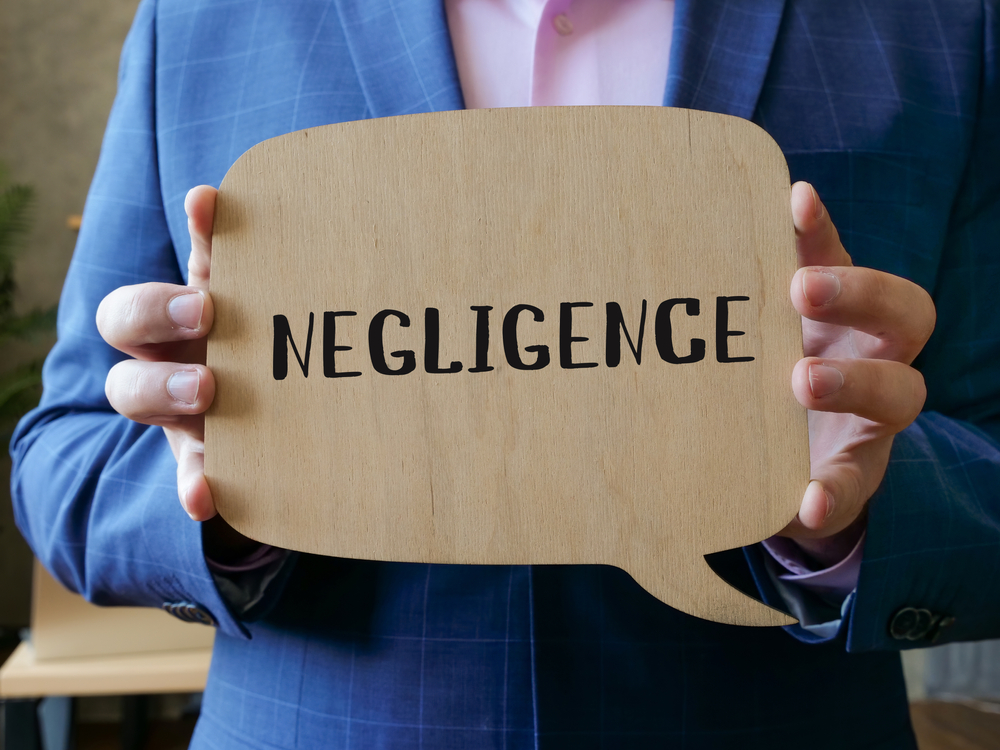When individuals face the aftermath of a severe car accident, the support of a Brookville car accident lawyer becomes invaluable. These legal professionals do much more than simply fill out paperwork or appear in court.
From untangling the complexities of insurance law to advocating aggressively on behalf of their clients, car accident lawyers provide strategic guidance, peace of mind, and practical solutions necessary in a difficult time.
Typical Tasks for a Car Accident Lawyer
A car accident lawyer represents clients impacted by motor vehicle accidents. Their work spans initial consultations, evidence gathering, negotiation, litigation, and ongoing client support.
Initial consultation and case evaluation
The process generally begins with a detailed consultation. Here, the lawyer listens carefully as the client explains the events of the accident.
Some important steps include:
- Reviewing medical records and accident reports: This helps the lawyer understand the full extent of injuries and liability.
- Discussing the details: Lawyers ask insightful questions about weather conditions, traffic, time of day, and even small factors like distracted driving, which can be crucial for a case.
- Estimating compensation: By reviewing documented injuries and losses, a lawyer provides an honest estimate of what compensation may be recoverable.
This initial evaluation ensures that injured victims understand their legal position before taking any major steps, saving time and unnecessary stress later.
Clear guidance on legal rights
Car accident law varies significantly by state and even within jurisdictions. Lawyers play a pivotal role in clearly explaining:
- State laws on liability: For instance, in Pennsylvania’s “choice no-fault” system, the lawyer will explain whether clients can file outside their own insurer.
- Statute of limitations: Each state has strict deadlines—waiting too long can mean forfeiting your right to compensation.
- Comparative or contributory negligence: In some situations, a victim who was partly to blame can still recover damages, though the amount may be reduced.
Lawyers empower clients to make educated, timely decisions by simplifying legal jargon and processes.
Investigating the incident thoroughly
A successful claim, whether it settles or goes to trial, is built on facts and solid evidence.
Collecting evidence for a strong case
Lawyers meticulously gather documents, images, and testimony. This process often involves:
- Photographs and videos: Images of the scene, vehicle positions, traffic signage, and injuries document exactly what happened.
- Witness statements: Third-party perspectives often clarify disputed details.
- Police reports: Official documentation can help establish facts or fault.
- Medical records and receipts: These link the injuries directly to the accident and justify requested damages.
Thorough evidence collection provides strong leverage in negotiation and increases credibility in court.
Collaborating with specialists
Complex cases benefit from the testimony of external experts.
- Accident reconstructionists: These professionals use physics and engineering to map out exactly how a crash occurred, sometimes creating 3D models or animations.
- Medical experts: Doctors or trauma specialists may testify about the nature and consequences of injuries.
- Economists and life care planners: These experts calculate long-term financial losses, from lost earning potential to the costs of assistive devices or ongoing therapy.
Using credible expert witnesses strengthens a case and demonstrates to insurers—and juries—that the victim has a thorough, well-founded claim.
Dealing with insurance companies
Insurance adjusters are skilled at minimizing payouts to protect company profits. Lawyers step in to level the playing field.
Communicating with insurers
Properly handling insurance communications is vital.
- Managing conversations: Lawyers ensure clients don’t unintentionally admit fault or underplay their injuries.
- Reviewing offers: By understanding true case value, lawyers can quickly spot inadequate offers.
- Challenging denials: If an insurer rejects or underpays a claim, an experienced lawyer can appeal, call out bad faith tactics, and file complaints if necessary.
An attorney’s involvement signals seriousness to the insurer and often prompts more reasonable negotiation.
Skillful negotiation tactics
Negotiating with insurers requires preparation, persistence, and the ability to support every claim with evidence.
- Highlighting evidence: Compelling photos, clear medical documentation, and proof of lost income speak louder than words.
- Demanding fair compensation: Lawyers emphasize factors that insurers often overlook, such as pain, emotional trauma, and long-term implications.
- Standing firm: They rebut low offers and are prepared to explain why their client’s demand is justified.
When an adjuster offers only partial medical coverage, a lawyer may present evidence of future surgery needs and precedents from similar cases to secure additional compensation. Proficient negotiators secure settlements that cover immediate bills and future losses, rather than quick, inadequate payouts.
Calculating damages accurately
Compensation is about more than fixing a car or paying hospital bills, should restore a client to their pre-accident position as much as possible.
Categories of damages
Lawyers ensure no category of loss goes overlooked. These include:
- Economic damages:
- Immediate and future medical expenses
- Lost wages (if the client is unable to work temporarily or permanently)
- Rehabilitation, nursing, or home-care costs
- Car repairs or replacement
- Non-economic damages:
- Pain and suffering, including chronic pain
- Emotional distress (such as PTSD or anxiety)
- Loss of enjoyment of life (for example, if hobbies or daily activities are impacted)
- Loss of companionship in severe cases
Documenting and forecasting every expense and hardship, lawyers maximize financial recovery.
Evaluating complex cases
Major injuries, such as traumatic brain injuries, spinal cord damage, or permanent disability, result in lifelong consequences.
- Future medical needs: Lawyers work with doctors to anticipate surgeries, therapies, and medication.
- Lifestyle adjustments: Clients may require accessible housing, in-home assistance, or retraining for new careers.
- Non-financial impact: Some effects, like chronic pain or the inability to care for family, need careful verbalization.
A meticulous approach prevents shortchanging victims of catastrophic injuries who may otherwise face mounting expenses years later.
Litigating when settlements fall short
Despite diligent efforts, sometimes insurance companies won’t negotiate in good faith, or disputed facts make a lawsuit necessary.
Navigating court proceedings
When trial becomes inevitable, lawyers manage all aspects of the legal process:
- Filing lawsuits: Drafting and delivering complaints, summonses, and responses to motions.
- Building the legal case: Developing a compelling narrative backed by facts, timelines, and expert testimony.
- Presenting in court: Conducting depositions, cross-examining witnesses, introducing exhibits, and guiding juries through the evidence.
Courtroom skill and meticulous preparation increase the likelihood of a favorable judgment or even a late-stage settlement.
Securing fair judgments
Convincing a judge or jury requires well-chosen strategies.
- Proving negligence: Establishing the opposing party failed to act reasonably, directly causing harm.
- Effective storytelling: Making the consequences of the accident relatable and clear to the jury.
- Defending against counterclaims: Neutralizing efforts by the defense to shift blame.
Lawyers might show how a distracted driver’s phone use led to a preventable accident, using call logs and witness statements for maximum impact. The outcome of a court case can shape long-term finances, relationships, and well-being; having a seasoned advocate in your corner is invaluable.
Special Considerations for Car Accident Cases
Unusual circumstances and legal complications often arise in car accident law. A flexible, knowledgeable attorney anticipates and addresses these issues.
Addressing comparative negligence
Shared fault can restrict recoveries in states that follow comparative or contributory negligence rules. Lawyers build strategies to minimize the impact:
- Refuting excessive blame: Challenging exaggerated claims that the client caused the crash.
- Emphasizing counterparty fault: Pursuing evidence that others—such as third vehicles, poorly maintained roads, or defective auto parts—played a significant role.
- Highlighting compliance: Showing the client’s responsible actions (like wearing a seatbelt or following traffic laws).
Skilled advocacy prevents unjust reductions in compensation and promotes fair resolution.
Filing within deadlines
Strict deadlines (known as statutes of limitations) govern when claims must be filed.
- Meeting deadlines: Lawyers track all relevant dates to ensure timely filing of paperwork, complaints, and responses.
- Jurisdictional nuances: Some jurisdictions have unique rules for government vehicles or minors involved in accidents.
- Proactive management: Anticipating and overcoming any procedural hurdles, such as missing documentation or delayed medical records.
After a hit-and-run, a lawyer may promptly locate the at-fault driver and file preservation orders for video evidence before it disappears. Prompt legal action safeguards rights and keeps cases on track.
Frequently Asked Questions About Working With a Car Accident Lawyer
1. Do I need a lawyer if the accident wasn’t serious?
Even fender benders can cause delayed symptoms or hidden injuries. An attorney can review a case for free and point out insurance pitfalls, such as underestimating injury severity or missing deadlines for property claims. Often, they can resolve issues that would otherwise linger for months.
2. How much time will my case take to resolve?
Simple cases may be settled in weeks, while complex cases with disputed fault, severe injuries, or reluctant insurers can take months or even years. A lawyer’s experience helps avoid unnecessary delays by streamlining paperwork, negotiations, and communications.
3. Is hiring a car accident lawyer worth the cost?
Most injury lawyers charge contingency fees—meaning you pay nothing upfront, and only a percentage of your winnings after a successful outcome. This approach allows all accident victims, regardless of financial background, to access skilled representation.
4. What if the other driver doesn’t have insurance?
In the event of uninsured or underinsured drivers, lawyers explore every avenue: suing other liable parties, invoking uninsured motorist policies, or seeking compensation from businesses or municipalities whose negligence contributed to the crash.
5. What happens if I share some of the blame for the accident?
In comparative fault states, your recovery is reduced by your percentage of responsibility. A lawyer will gather and present evidence to minimize any fault attributed to you, maximizing your financial recovery.
Turn Legal Concerns Into Opportunities
The aftermath of a car accident can involve everything from physical pain to financial stress and overwhelming paperwork. Even if you feel confident in your initial negotiations, having a professional advocate changes the dynamic with insurers and other parties.

At Pribanic & Pribanic, our seasoned legal Brookville personal injury lawyers bring decades of experience to clients, supporting Pittsburgh and surrounding areas with commitment and compassion.
We handle each step of your case, from urgent insurance paperwork to courtroom advocacy. Our team’s goal is not just compensation, but peace of mind, clarity for the future, and the confidence that you didn’t leave anything on the table.
Don’t wait, delays can hurt your chance at a full recovery. Whether your case is straightforward or highly complex, contact us at (412) 281-8844 to schedule a free consultation. Start the next chapter of your recovery today, with knowledge, support, and a trusted team.


